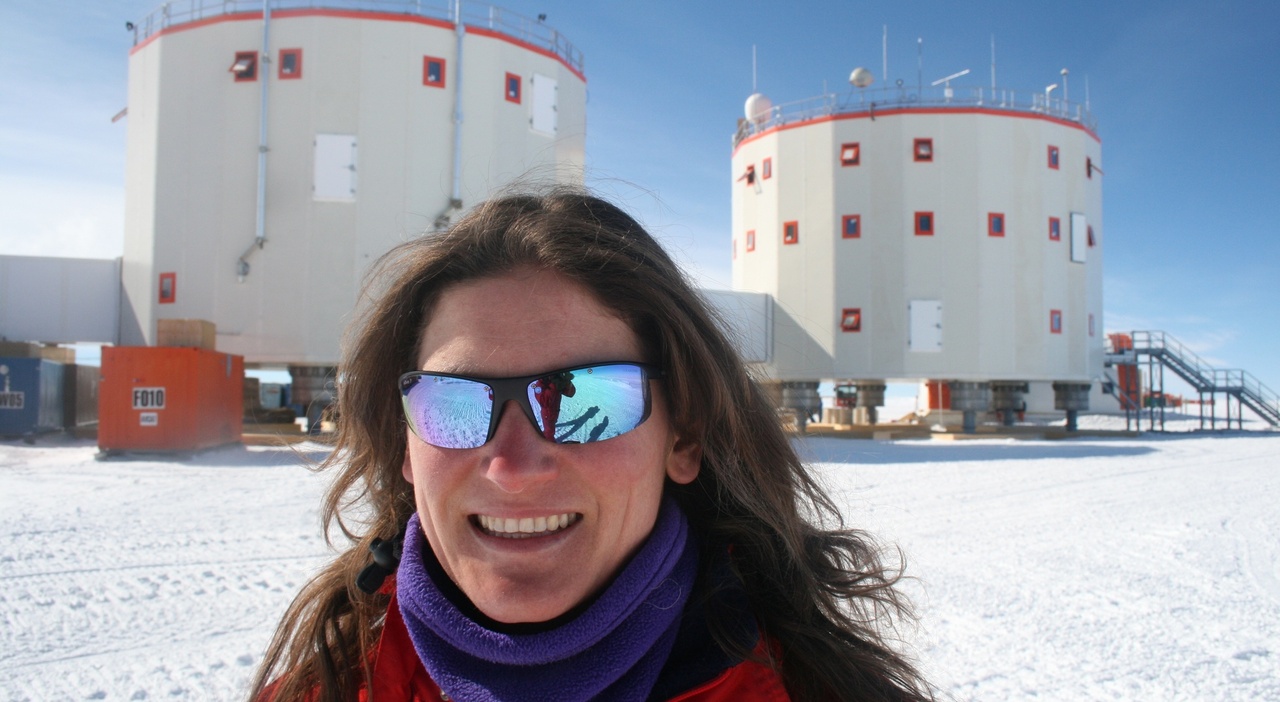As a child, she dreamed of being an explorer and as an adult, chasing a dream, she found herself being the first Italian woman to lead a scientific expedition in Antarctica at the head of a team of only men. Engineer Chiara Montanari has returned to this inhospitable region several times during her career. The fusion of these extreme experiences with the study of complexity science has allowed Montanari to develop a method that even allows companies to learn to thrive in uncertainty, not only reacting to the unexpected but adapting to the surrounding environment.
"For complexity and uncertainty, Antarctica can really be compared to our societies, to unstable markets, to global challenges: the dynamics related to how to deal with unexpected situations require flexibility, innovation and ductility from everyone," says the scientist protagonist of successful Ted Talks, known internationally and included by Valore D among the female models in the "Not a male" campaign to combat gender stereotypes and inspire young women in schools, universities and work.
You broke many stereotypes when you found yourself managing a scientific station and an entirely male staff in the middle of the ice. How did it go?
"To tell the truth, I did not imagine going to do a male job. It's just that life always takes you where you least expect it, and you should never ask yourself what you represent, just do what you feel. So it happened to me. Everything started on the first trip, it was 2003. I was responsible for the direction of the works for the installation in the Italian base Mario Zucchelli of a system for heating, ventilation and air conditioning of high energy efficiency designed by me." Then other expeditions arrived...
"The impact with pure nature changed me, I confess. Shortly after, the mission also arrived at the Italo-French station Concordia, at 4000 meters high on top of the polar cap, with temperatures ranging from minus fifty degrees in summer to minus eighty degrees in winter. We were 80 people, half researchers and half technicians, a multidisciplinary and multicultural community. Unexpected events were obviously the order of the day".
What was the most complex experience?
"The next assignment, at the Belgian station. Due to a series of problems, we found ourselves in a station that unfortunately had been sabotaged and looted. We were initially eleven and then thirty-two. I was the only woman. To give an idea of what we had to overcome, suffice it to say that we had emergency supplies, the minimum of fuel and even little food. Fortunately, it was warm, there were fifteen degrees below zero, otherwise we wouldn't have survived." Do women in command in traditionally male environments have to prove to be better or is it a stereotype?
"Normally it is so. You need to demonstrate, with equal skills, to work better and twice as much as a man. The same thing happens in multinationals. I think that female leadership has peculiar codes that have been developed over time. In my opinion, women are equipped for flexibility, diversity, teamwork, not competition. In male environments, a woman always brings a different, lateral thinking, which necessarily translates into pure innovation. And today more than ever, in Italy and elsewhere, there is a need for innovation. Generating novelty means contamination. In Antarctica, I observed exactly this dynamic and it served me for the future." How so?
"By elaborating the models tested in extreme situations, I came to determine guidelines that can also be applied elsewhere. In markets, in companies, in resource management for example. After all, Antarctica is the most similar thing there is to the global and complex world in which we live, marked by extreme uncertainty and exceptional events, think of climate change or wars. However, uncertainty must be considered a resource as it forces us to break away from codified behaviors and develop lateral, parallel navigation. Reality is always richer than it appears at first examination and often proposes solutions that we had not imagined. So now I teach to develop awareness." Working in male environments, have you ever suffered harassment?
"Not of a sexual nature, fortunately, however I had to deal with psychological situations that were not easy to manage, complicated. However, I found the energy and resources to overcome everything positively".
Antarctica, unmanned drone explores the ice
This article is automatically translated
